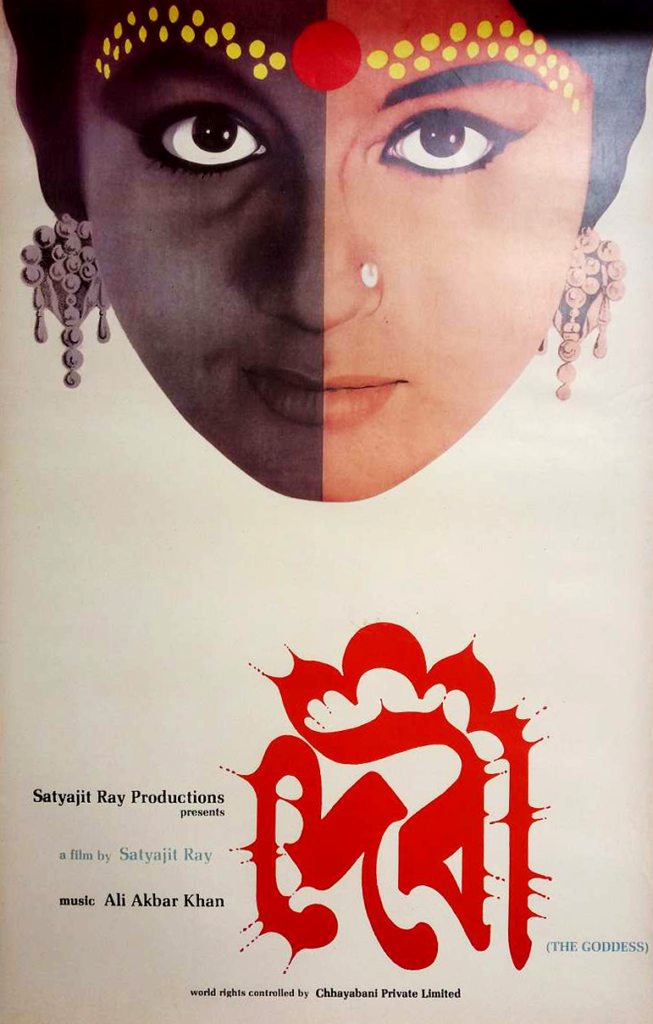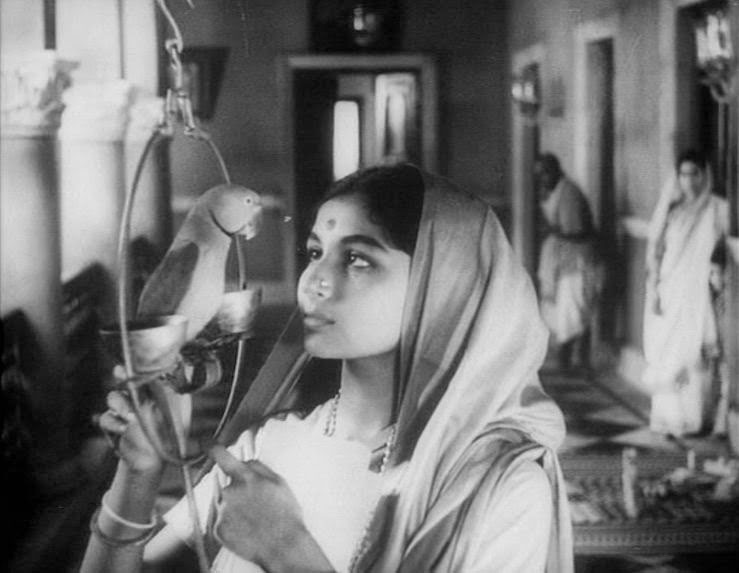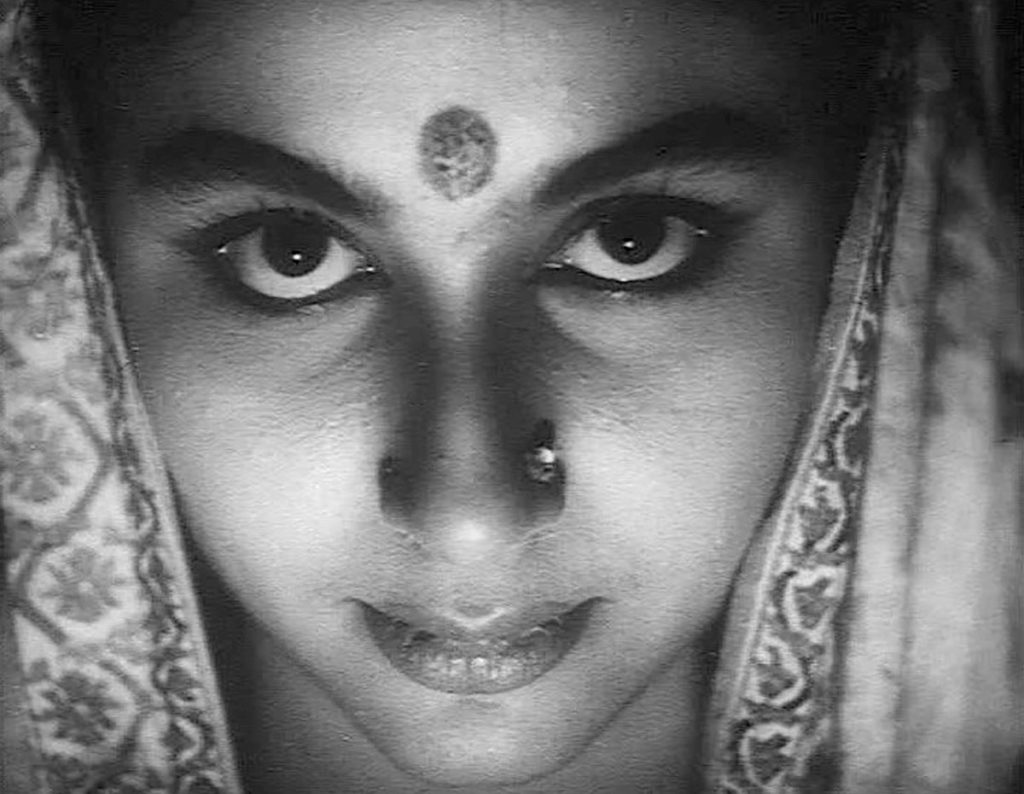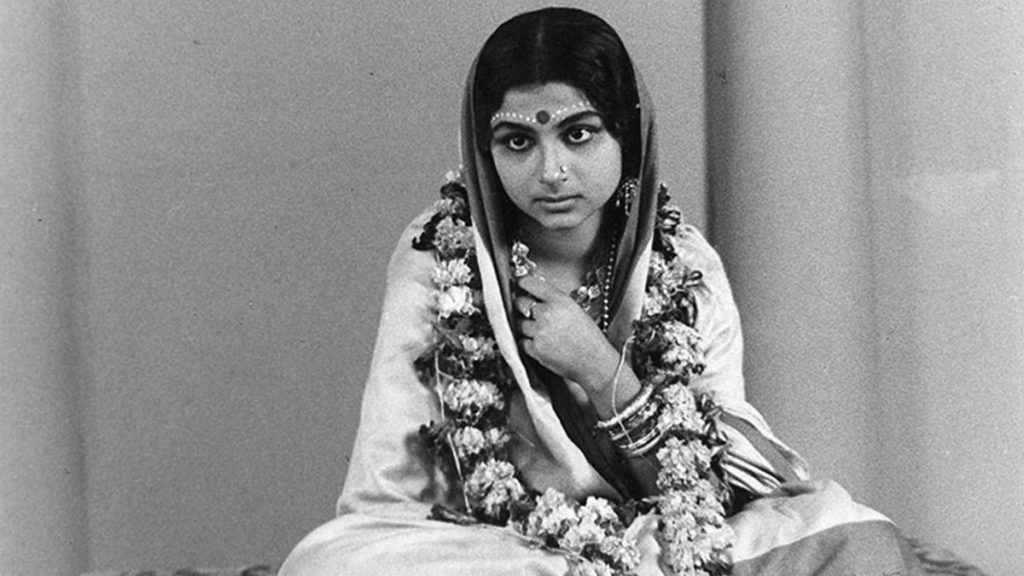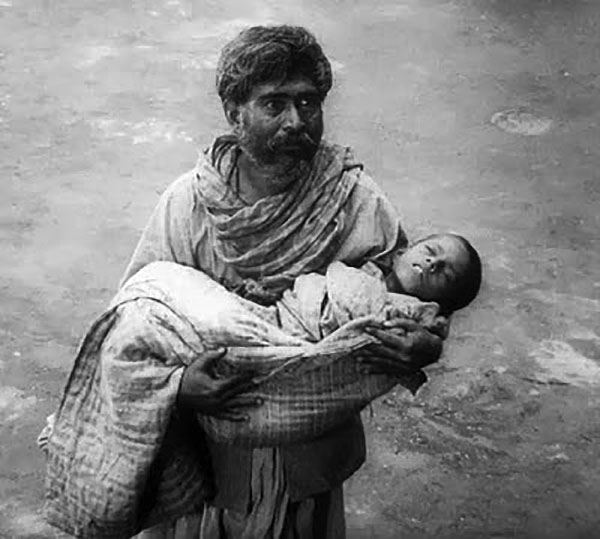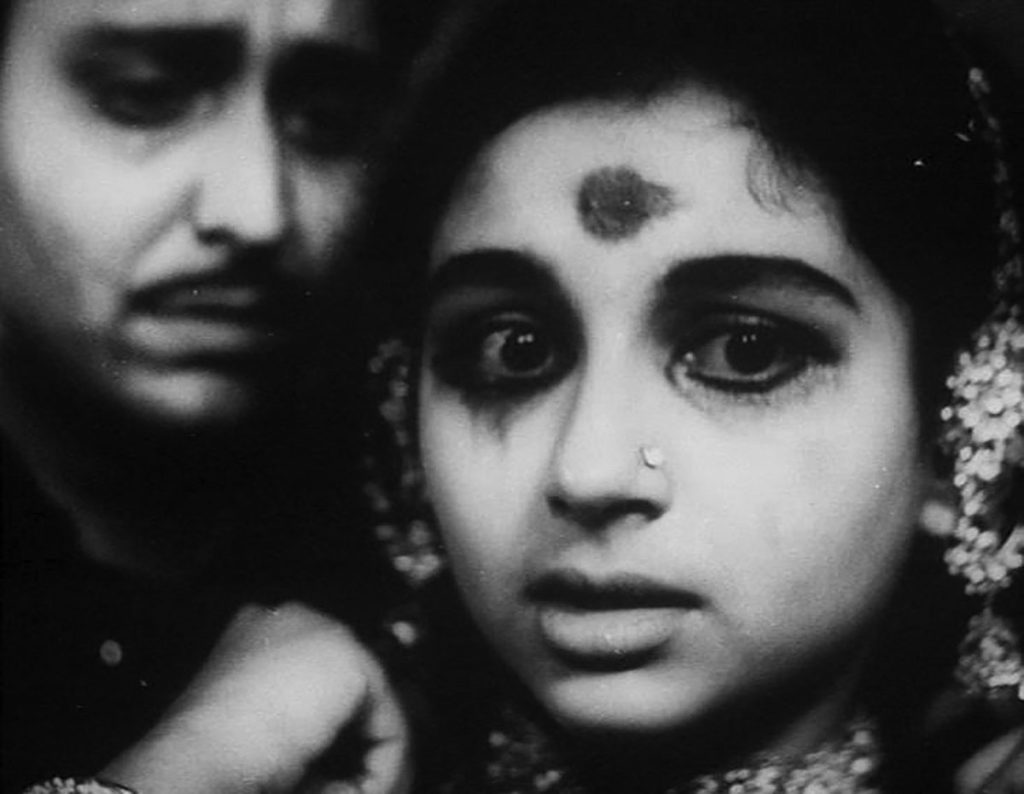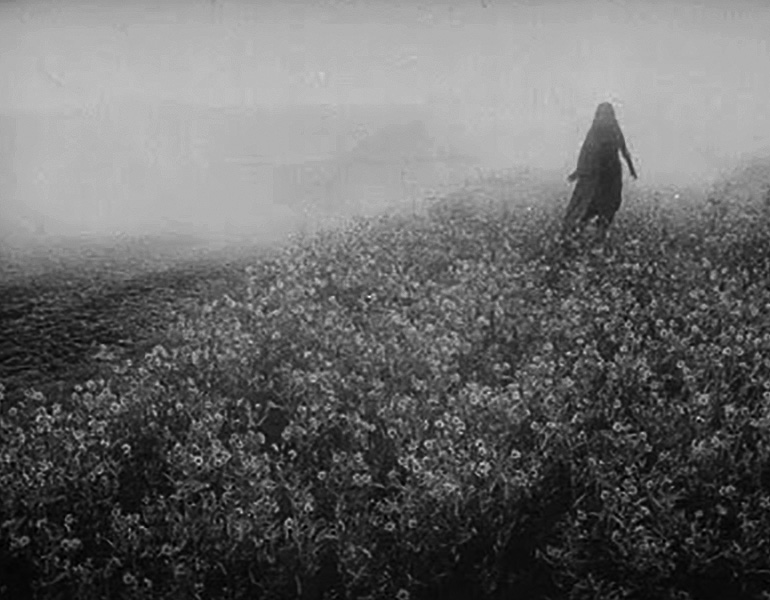Devi (The Goddess)
1960, India. 93 min, B/W, In Bengali with subtitles.
Summary
The film is set in 1860 at Chandipur, in rural Bengal, India. Doyamoyee (Sharmila Tagore) and her husband Umaprasad (Soumitra Chatterjee) live with his elder brother (Purnendu Mukherjee), his wife (Karuna Banerjee) and wealthy father, Kalikinkar Roy (Chhabi Biswas).
Kalikinkar Roy, the patriarch, is an aging widower. He is a respected landlord and a devotee of the Hindu goddess, Kali. Umaprasad, Doyamoyee’s husband, is away to study in Calcutta. She looks after her old father-in-law. She has a soft corner for her nephew Khoka, with whom she enjoys a fond relationship.
Roy has a revelation in a dream that his daughter-in-law Doyamoyee is an incarnation of the goddess Kali. He insists she be worshiped. Then, a dying child is placed at her feet and he is miraculously cured. As the news spreads, the aged, sick and the poor come in hundreds; seeking cures and comfort. As Doyamoyee’s husband Umaprasad learns about the events, he returns home to her rescue. Umaprasad attacks the tradition and tries to reason with his father and tells him that he has gone insane. The father is unmoved. To him, the miracle cure demonstrates the truth of the his beliefs.
Umaprasad tries to take her away, but to his surprise finds that she too has become convinced of her divine status. Doyamoyee’s nephew, the child Khoka, falls ill and is placed in her care. The child dies for lack of medical treatment in her arms. Her husband tries again to persuade her but it is too late. The child’s death has shattered her. Doyamoyee, the proclaimed goddess has gone mad. As he calls her, she is seen running away into a field and vanishing into the mist.
Comments
The film generated some controversy on its release in India. It was seen as an attack on Hinduism itself by a few protesters, who tried to prevent the film’s international release. However, the film was eventually released and went on to receive a government award, the President’s Gold Medal. The teen-aged Sharmila Tagore gives an outstanding performance in the title role. She commented a few years later, “Devi was what a genius got out of me, not something I did myself”.
The film uses many details that create the atmosphere. These details however, may be lost to a viewer not familiar with Hindu customs and Indian life. Even Pauline Kael, who greatly admired the film, wrongly read “startling Freudian undertones” in film. Probably, referring to Doyamoyee massaging her father-in-law’s feet. Massaging feet, in fact is a mark of respect towards elders, usually parents and parents-in-law.
What others say
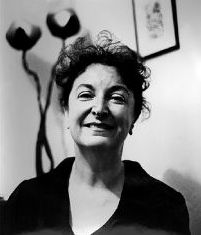
Awards
- President’s Gold Medal, New Delhi, 1961
Credits | |
| Producer: | Satyajit Ray Productions |
| Screenplay & Direction: | Satyajit Ray, Based on the short story – ‘Devi’ by Prabhat Kumar Mukherjee |
| Cinematography: | Subrata Mitra |
| Editing: | Dulal Dutta |
| Art Direction: | Bansi Chandragupta |
| Sound: | Durgadas Mitra |
| Music: | Ustad Ali Akbar Khan |
Cast | |
| Doyamoyee: | Sharmila Tagore |
| Kalikinkar Roy: | Chhabi Biswas |
| Umaprasad: | Soumitra Chatterjee |
| Taraprasad: | Purnendu Mukherjee |
| Harasundari: | Karuna Banerjee |
| Bhudeb: | Anil Chatterjee |
| Khoka: | Arpan Chowdhury |
| Professor Sarkar: | Kali Sarkar |
